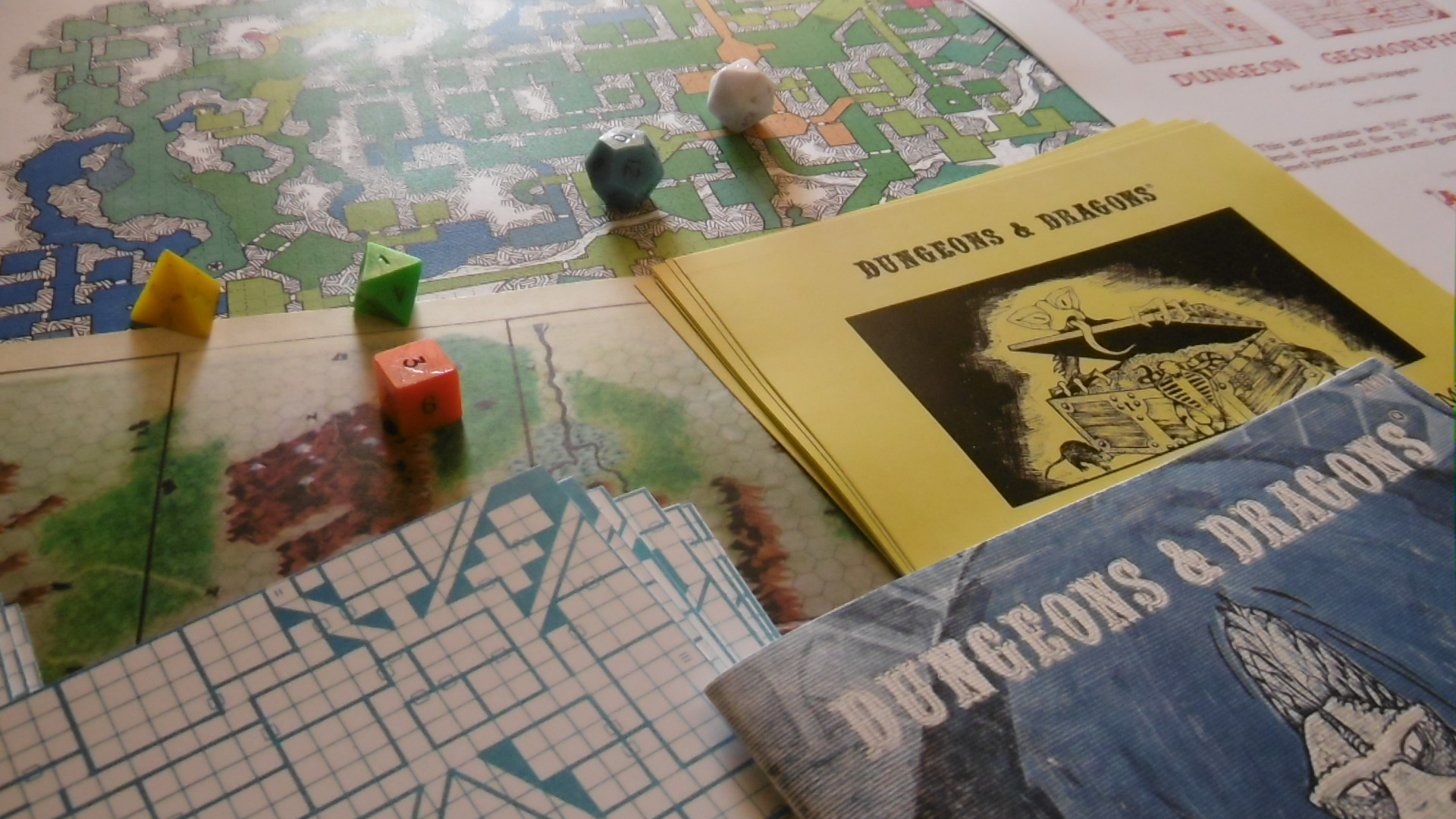
Don’t Throw Out the Box the Map Board Came In
In this article, I don’t mean to say anyone is playing the game wrong. I mean to say that our OD&D games—or at least our esteem of the rules—might improve if we reconsider the ignored parts of Chainmail and Outdoor Survival.
A recent Grognardia article reminds me of a point I’d like to bring up. In “Retrospective: Outdoor Survival,” James Maliszewski gives adequate treatment to the 1972 simulation game, with due attention to designer Jim Dunnigan, mention of the included Wilderness Skills primer—which reminds James of The Boy Scout Handbook, and a brief summary of play and the five scenarios typical of a wilderness environment: Lost, Survival, Search, Rescue, and Pursue.
He doesn’t miss the map board, of course, and its suggested use in OD&D as the setting for impromptu adventures. James notes that Outdoor Survival is the second entry in Vol. I under the heading “Recommended Equipment.”
When playing OD&D, I think1 we don’t take the rulebook’s advice seriously enough. It’s true, “Recommended Equipment” is misleading. Considering the “Dungeons and Dragons” rules are first in the list, “Required Equipment” would be more accurate. We would hardly think of playing D&D without dice, to cite the list’s third entry.
Likely due to the cost of two more games in addition to the ten 1970s dollars we already spent on a box of three slim booklets—not to mention dice, we content ourselves to replace Chainmail with the Alternative Combat System and sometimes use Outdoor Survival’s map board as a wilderness setting.
In so doing, we neglect the other—admittedly cumbersome—combat rules, like move-and-countermove (Chainmail, 9), parry and number of attacks per round by weapon class (25-26), and I’ve talked enough about jousting.2 In fact, the Alternative Combat “System” replaces, with a d20, only Chainmail’s fistful of dice to determine hits.
Later D&D editions revisited Chainmail to restore some of the combat options. The Holmes edition’s oft-bemoaned implementations of parry and number of attacks per round (20-21) are examples, as is B/X’s oft-ignored combat sequence (B24). But OD&D combat, bereft of these options, becomes the stereotype “I miss, I hit… I miss again.”
We also explore the wilderness on a hex map, but without any dangers apart from monsters with lots of hit dice rolled on the Wilderness Wandering Monsters tables. For this reason, commenter Gus L., in response to James’s article, likens adventures in the OD&D wilderness to “a bus ride with fistfights.”
It doesn’t have to be that way. On the page before the wilderness monster table, Vol. III refers us to Outdoor Survival’s rules as well as its board to handle lost parties (17). Further, when a party becomes lost, food may well run short. In a desert, water is scarce. Maybe it makes for a less than heroic adventure, but rules to handle starvation, thirst, weather, and fatigue are found in Outdoor Survival. By breaking up the succession of fistfights, incorporation of those rules can turn the bus ride into a challenging journey accompanied by the threat of many-hit-dice monsters.
Grognardia doesn’t mention Outdoor Survival’s most interesting innovation for an early 1970s game. After we’ve learned the rules playing a Lost scenario and maybe a Search or a Rescue, lackluster as they may be, we must press on to Scenario 6.
Scenario 6: One of the most interesting aspects of OUTDOOR SURVIVAL is the opportunity it provides for devising your own scenarios. Once you have mastered the mechanics of play, many additional ideas, providing more testing of outdoor knowledge and skills, will come to you. Integrating these situations with the standard games will add pleasure and skill-sharpening to the playing.
—Jim Dunnigan, Outdoor Survival
There is a certain irony in that Scenario 6 appears under the heading “Optional Rules.” For best results, I recommend using “Dungeons and Dragons”—those slim booklets containing lists of spells and monsters—as additional equipment.
Notes
1 I use “I think” as a lazy and weak shield against attacks from those whose opinions differ. Excuses to my sophomore English composition teacher, who pointed out, “If you didn’t think it you wouldn’t write it, would you.”
